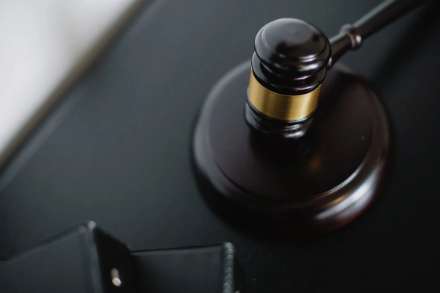Role of Felony Criminal Record in Determining Child Custody
Author: Miod & Company
Date: July 29, 2022
Category: Family Law, Litigation, Tax
Average Time Reading: 4 minutes

During the divorce process, you’ll often hear the words “child custody” and “visitation” if you and your former spouse have children together.
When determining child custody in a separation, multiple factors can influence the final decision. From your ability to provide for the child’s basic needs to your past/present criminal record, your actions will affect the future of your kid.
Let’s talk about how child custody is determined and how your criminal record can affect the court’s decision.
What is Child Custody, And How is it Determined?
Child custody is the responsibility of the parents to take care of their child or children after a split.
In California, custody can either be given solely to one parent or shared between both. While you and your former partner can negotiate an agreement, the judge will have to approve what you propose (they usually do).
Here’s what the judge considers when looking to approve a decision:
- The child’s basic wellbeing
- Either parent’s history of abuse against the other or the child
- The nature of the parent’s relationship with each other and the child
- History of illegal use of substances such as alcohol, medications, drugs
- Anything else that the judge deems important to consider
However, if tensions are high and a decision cannot be made, the judge can take over in a court hearing. The judge will usually wait for the parents to meet with a mediator, or a third party, to help discuss their options in a neutral environment.
Two types of child custody exist: legal and physical custody.
Legal child custody allows the parent to make all of the big, important decisions for the child’s wellbeing. Physical custody is what it sounds like: who the child physically lives with.
When possible, it is recommended that both parents share physical and/or legal custody, known as joint custody.
Sometimes, the judge will award one parent physical custody over the other, even if they share legal custody. Fortunately, that doesn’t mean the parent without physical custody never gets to see their child.
A visitation order can be issued, allowing the parent without physical custody the right to visit their child. These orders depend on the needs of the child and the familial situation.
Here are some of the factors used in deciding visitation orders:
- According to the schedule
- Reasonable visitation
- Supervised visitation
- None at all
Visitation according to detailed time and day schedules of the parents and the child can help avoid mishaps such as scheduling conflicts. On the other hand, reasonable visitations are much more open-ended and perfect for former spouses who are still on good terms.
Supervised visitations are necessary for the child’s safety if they aren’t familiar or comfortable with the other parent. However, if the visits could potentially harm the child, physically or emotionally, then they won’t be awarded at all.
At the end of the day, decisions on child custody and/or visitation rights will always be made in the child’s best interest.
Criminal Records—Will They Affect my Custody?
Criminal convictions can obviously raise some concerns in a custody battle, but that doesn’t necessarily mean you can’t or won’t be able to see your child. So will the judge consider illegal acts in a child custody case?
As mentioned before, the judge will consider the child’s needs above all else, which most often means having both parents present in their lives, even if one parent has a criminal past.
Nonetheless, it also depends on the degree of the felony. A parent involved in a theft years before the child’s birth may not influence the court’s decision more than something much more serious, such as assault or domestic abuse.
If there is any speculation that the offending parent could harm the child in the future stemming from their criminal record, then it’s very unlikely that they will receive physical custody, visitation, or even legal custody.
The other spouse’s attorney may use your criminal record against you in court if you struggle to come to an agreement. Luckily, the lower the degree and the more years that have passed since the felony, the more likely you are to be able to see your child or have custody.
What’s Next For You
Even if they aren’t true, former spouses may turn to blame you for the failed marriage and even falsely accuse you of abuse, neglect, or something similar.
Anything said before the judge can affect the outcome of your case, so it’s important to have expert help to defend your name in court, especially if you face pending charges.
Here at Miod and Company, our team is devoted to ensuring that our clients’ custody issues result in the best possible conclusion. We go above and beyond to deliver excellence to our clients. Schedule a Free Consultation with an expert.

Paul White joins Miod & Company
Author: Miod & CompanyDate: June 15, 2022Category: TaxAverage Time Reading: 4 minutesIt’s not a common occurrence for a business to bring on a member of a rival firm to its staff. It’s even less likely to bring on a founder of a rival firm. Paul White joining Miod...

Find out How to Safeguard Pensions in Divorce
Pensions in divorce can be a complex and stressful issue to navigate during a divorce proceeding. The fate of your retirement savings or pension plan may be one of the many concerns you have during your divorce proceeding. If you've been able to save money through...
Miod and Company
Contact Us
Address: 27200 Tourney Rd #290 Valencia, CA 91355
Phone: (818) 898 9911
Email: contact@miod-cpa.com
© 2026 Miod & Company, LLP. Developed & Maintained By League Marketing